Over the years, Magic Leap's long-cultivated shroud of mystery led some onlookers to buy into the company's dream before even trying the device, while for others, the secrecy seems to have stoked the kind of resentment and overcorrecting critique usually reserved for the mighty Apple.
Now, months after the Magic Leap One's release, the company has finally had its first public outing with developers, early adopters, and the media via the L.E.A.P. conference. It's no longer about smoke and mirrors and NDA agreements. Magic Leap has, finally, exposed itself to real scrutiny. But that scrutiny didn't end at the release of the device, or the parade of executives on stage at last week's L.E.A.P. event.
Finally, the company's leadership is ready to face some of the more specific questions that we didn't get answers to during the controlled, pre-release embargo interviews, or brief post-software demo question and answer sessions. This time, we managed to get Magic Leap's chief content officer, Rio Caraeff, to sit down in a room away from all the spatial computing hubbub to answer a few nagging questions we've had about Magic Leap since its release.
Next Reality: Why isn't there more of a focus on enterprise? What's Magic Leap's strategic logic with regard to focusing on entertainment software first?
Rio Caraeff: I'll answer that in a couple of different ways. Magic Leap starts with people, not sales channels. We don't think about the world as an enterprise sales channel or a consumer sales channel. That's not how real people exist in the world. Real people have families, they have jobs, they need to be productive, they need to be informed, they need to be entertained, they need to communicate.
We're people focused. We're trying to amplify the human condition. We're trying to give you superpowers. We're trying to make you more connected to people, places, and things around you. More productive at work, more connected at home. This informs the basis of what we do. Human-centered AI, not [just] AI.

Why do the optics look like we're more game or entertainment focused? It's a simple thing that I take for granted, but I realize that not everyone immediately sees. There's a one-to-one correlation of tools and skills with game devs in everything we do. They already think and build in 3D. They already understand meshing and occlusion, they understand shadows and depth. They understand the tools — Unity, Unreal. They understand most of the input methods, but some of them are new to them. So they have no learning curve. They just can start right away. They're not skeptical.
If you're an enterprise, Salesforce, cloud app developer, even if you're a web developer, you may be interested, but there's a lot of new concepts, new tools, it's not super easy. Maybe two years ago, you had to have the skills of a hardcore Xbox developer to actually make something. It's gotten a lot easier, but it's still not for everybody yet. So initially, you see a lot of game, a lot of entertainment [on the Magic Leap One], a lot of that is due to how quick and easy it is for game developers to get into it.
We are very focused on enterprise. Some of it is about if you have developers who are serving enterprise customers, and then you have enterprise customers who are looking to deploy Magic Leap or solutions like Magic Leap. And you have to remember that businesses don't buy technology, they buy solutions to problems or access to opportunity. So Magic Leap by itself, HoloLens by itself, none of these things are either, they need the software and the solutions from developers to solve those problems and create those opportunities.
We are focused on enterprise, but right now it's just about getting it into the hands of developers and creators, including medical imaging developers, architects, communications software developers, the public sector. It's about getting it out there, seeing what works, where the passion is, and then let's throw some fuel on that.
Next Reality: For someone new to these devices, what would you say is the key differentiating factor between something like the HoloLens and the Magic Leap One?
Caraeff: Right now, the way I look at it is, whether HoloLens, or ARKit, or ARCore, or Magic Leap, right now it's the dawn of something new. It's not a mature industry. We think this is what comes next. We're all gonna take our own journey to get there. The only thing we know for certain is that there needs to be some level of interoperability.
The 500 foot [augmented reality] dragon that lives in Central Park, I want to see the dragon, you want to see the dragon, [but] we may not all be using Magic Leap. How do we all see the dragon? We need to cooperate. We need to interoperate. There needs to be standards.
If you're going to build a Magicverse, if you're going to have an AR cloud, if you're going to enable these things where we can have shared experiences and city scale meshing, and persistent digital experiences seamlessly integrated into the physical world, these things need to evolve.
It's kind of that rising tide lifts all boats answer. We're focused now more on interoperability than we've ever been, because we know it's not going to be a homogenous world where everybody does one thing.
Next Reality: Some of Apple's overall style and approach, including marketing, extreme secrecy, etc., seems to be mirrored by Magic Leap. One thing critics of Apple sometimes comment on is its walled garden approach to software. Given your comments on interoperability, are you saying Magic Leap is different about its strategic approach to the market?
Caraeff: Today, we are more of a walled garden, we're not a completely open framework. When I said interoperability I meant interoperability within certain parameters, I didn't say completely open platform. We have Magic Leap World, which is a marketplace that we curate to make content available, we have a browser framework that anyone can create anything for, we support WebXR, we have our own web framework for 3D applications. Anybody can make anything they want; it's not filtered or intermediated in any way.
- Don't Miss: Everything Magic Leap Revealed During Its First Annual L.E.A.P. Conference Keynote Event
We made a decision to be that way for specific reasons. It's not a casual or accidental decision. As a brand, we care about quality, we care about experiences for everybody. We want to make sure that we focus on maintaining privacy for users, focusing on security. And we want to make sure that we get the basic principles right, and then we can start to look at how we expand and grow, and perhaps loosen the reins a bit.
The user's physiology, the data, your privacy, the sensors that are mapping and seeing your world, those are responsibilities that we have. It's not to be taken lightly. We don't want to just let all that information be sucked out into some application and then not be accountable for the consequences. We've got to get this right. So it's better for us to be a little bit more careful, and then look to see how can we expand the permissions.
Next Reality: I've noticed that even some of the most talented developers sometimes design AR experiences using VR sensibilities — that is, an enclosed, bubble world approach — and don't really harness the unique capabilities inherent in something like the Magic Leap One in terms of deep interaction with the real world via meshing, etc. It seems many AR developer's minds haven't really grasped how to approach this new medium…
Caraeff: Some developers, whether they're coming from VR or console or other platforms, they're used to designing a "world." In Magic Leap, you already have a world. You already have a physical environment, you already have people, places, and things around you. And you don't control that world as a developer. So you have to become comfortable with ambiguity, comfortable with uncertainty. You don't know what the room is going to look to like. So you have to design your experience in a way that makes it adaptable.
And you also have to look at the cognitive load of the user. [If] my dog walks in the room, I still want to be able to see and pet my dog. I don't want to walk into a wall. I need to still see the people, places, and things around me and process them mentally, not have an overwhelmed cognitive experience. So sparse digital content integrated into the physical world can actually be more impactful than lots of digital content.
There's definitely a process for designers and developers to think differently about mixed reality than VR. With Seedling, from Insomniac, that experience can grow toward real light sources. When I come close to it, it can see me and get defensive. I look at it as, a successful developer, a successful application, a great experience is one where the meantime between the time it takes for me to accept it as real is really what matters. If the digital thing is just as real as a physical table, then it's a success, because I've accepted it as a reality.
Next Reality: Is Magic Leap looking into blockchain technology as a means to perhaps assign real world value to virtual items within its so-called Magicverse?
Caraeff: We've announced what we call the Magicverse, which is a geospatially connected mesh of shared experiences. Whether it's room scale or city scale. Other people may call that different things — you can call it an AR cloud, you can call it a kind of "verse," but basically it's the way with which we persist digital experiences across a variety of environments and devices, including interoperability. And that's how we're thinking about it.
For us it's not about "how do I save my level in a game to the cloud," because we can do that now. It's about shared digital experiences over a large scale over a long time. I don't want to get into the mechanics of it. We're not announcing how it works, we're talking about what it is.
Just updated your iPhone? You'll find new emoji, enhanced security, podcast transcripts, Apple Cash virtual numbers, and other useful features. There are even new additions hidden within Safari. Find out what's new and changed on your iPhone with the iOS 17.4 update.
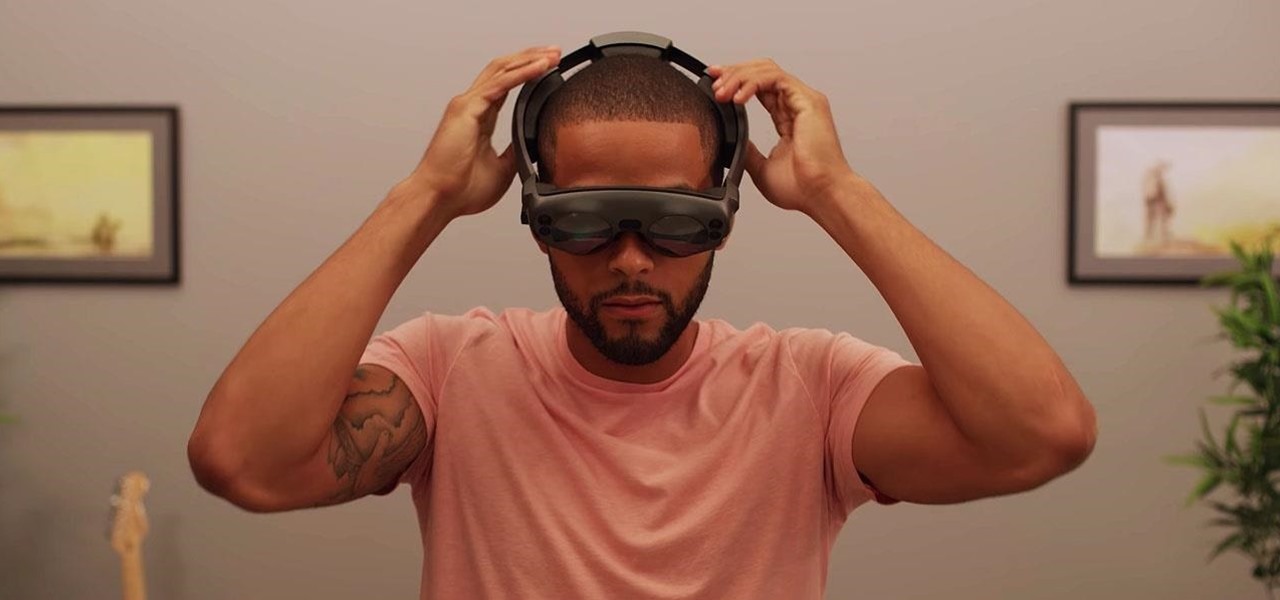


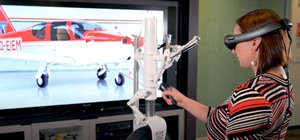
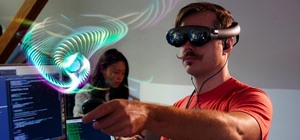


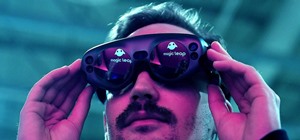
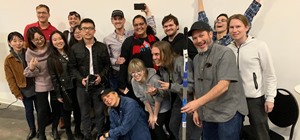


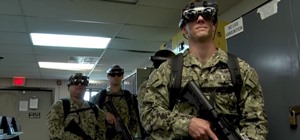





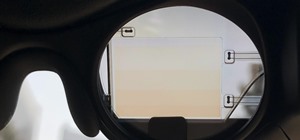
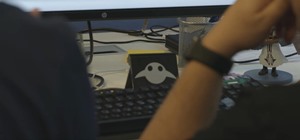

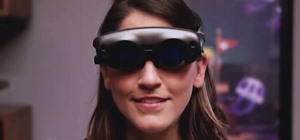

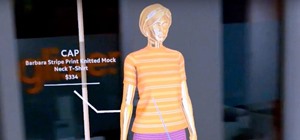
Be the First to Comment
Share Your Thoughts